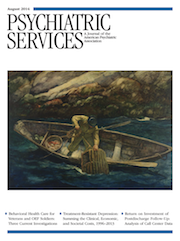The authors begin with the story of psychiatrist Dr. Irmfried Eberl in their thorough and painstakingly detailed work that attempts to integrate the theoretical and practical implications of moral and ethical literature in psychiatry. The psychiatrist’s shocking role in the Holocaust during World War II is used as a challenging and extreme example to begin the discussion of formulating moral agency. The authors cite several well-established frameworks, which they develop in greater detail as the book progresses. Dr. Robertson is a community-based psychiatrist and associate professor of psychiatry ethics at the University of Sydney. Dr. Walter is chair of child and adolescent psychiatry at the University of Sydney and director of child and adolescent mental health services for Northern Sydney Local Health District.
This text reviews many well-known methods of ethical reasoning. Robertson and Walter present these approaches with the support of supplementary tables and figures, which help bring this large body of work into perspective. The authors employ a rigorous technique, introducing each framework with its history and then discussing the framework and its application to psychiatry; at times they finish with a case example. I found the few case examples to serve as the most helpful points, bringing the previously discussed theories into perspective and making a crucial connection to a much wider audience, thus broadening the value of this text. Involuntary confinement, cultural differences, neoliberalism, popular culture, and neuroscience on psychiatric ethics and their impact are also discussed.
The main theme throughout the book is that of the dual-role dilemma, and it is reexamined repeatedly in light of each framework and in specific areas of psychiatric practice, including psychotherapy, child and adolescent care, research, elder care, and consultation-liaison services. The importance of historical perspective and need for constant reexamination of moral conflicts are emphasized. The limitations of evidence-based medicine are effectively demonstrated through a case example, and the impact on psychiatric ethics by governments in Argentina, the United Kingdom, China, and Australia is also explored.
The authors use language that may challenge readers who are not well versed in the world of ethics. An exhaustive reference list for each chapter is provided, which would satiate even the most avid ethics student. I found the case examples and discussions applicable to psychiatry regardless of practice location. This text would be of interest to anyone with a genuine passion for in-depth consideration of moral and ethical frameworks and possibly those who may find themselves struggling with a specific ethical dilemma for which application of a specific framework may be of use. The authors end with a poignant reminder that no matter the ethical framework, the key is reflection, without which we are at great risk for a tragedy, not unlike the unspeakable crimes of Dr. Eberl.
Acknowledgments
The reviewer reports no competing interests.

